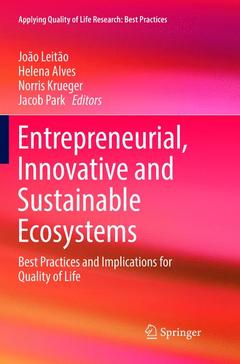João Leitão is assistant professor at UBI, lecturing on entrepreneurship and economics for undergraduate and graduate economics, engineering, communication sciences, marketing and management students since October 1, 1999. He is associate researcher of the CEG-IST, University of Lisbon and Professor Vinculado at the Instituto Multidisciplinar de Empresa, Universidad de Salamanca, Spain. He is co-author of fourteen books on benchmarking, human capital, clusters, cooperation networks, public private partnerships, entrepreneurship, entrepreneurship education, firm growth, innovation and competitiveness. He won the Best Paper Award of the Interdisciplinary European Conference in Entrepreneurial Research – IECER 2012. His work has been published in several indexed journals, such as, Research Policy, Industrial and Corporate Change, Service Industries Journal, Journal of Intellectual Capital, Journal of Evolutionary Economics, Innovation: Management, Policy & Practice, International Journal of Technology Management, International Journal of Entrepreneurship and Small Business, International Review on Public and non-Profit Marketing, International Journal of Business Excellence, International Journal of Technology Transfer and Commercialization, International Journal of Entrepreneurial Venturing, South African Journal of Information Management, International Research Journal of Finance and Economics, Actual Problems of Economics and Revista Portuguesa de Estudos Regionais. He is member of several editorial boards, namely, Journal of Small Business Management, International Journal of Entrepreneurial Behaviour and Research, International Journal of Public Sector Performance Management, Revista Portuguesa de Estudos Regionais, Revista Portuguesa e Brasileira de Gestão and Revista Portuguesa de Marketing. His research interests include: entrepreneurship; innovation; public policies; and regional policy.
Helena Alves is associate professor at




